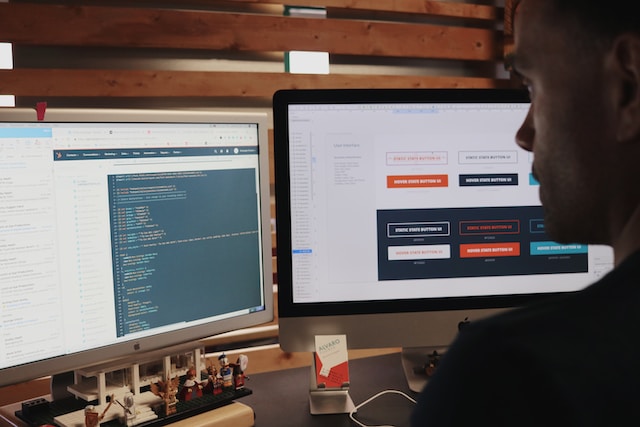Can you become a Cyber Threat Intelligence Analyst without a degree?
An alternative career path to becoming a Cyber Threat Intelligence Analyst with its major challenges, possible benefits, and some unconventional ways to hack your way into it.

Yes, it is possible to become a Cyber Threat Intelligence Analyst without a degree. While a degree can be beneficial and may provide a solid foundation in cybersecurity concepts, it is not always a strict requirement for this role. Many employers in the cybersecurity field value practical skills and experience over formal education.
How to achieve this career goal without a degree:
-
Gain relevant certifications: Obtain industry-recognized certifications such as Certified Information Systems Security Professional (CISSP), Certified Ethical Hacker (CEH), or Certified Cyber Threat Intelligence Analyst (CCTIA). These certifications demonstrate your knowledge and competence in the field and can help compensate for the lack of a degree.
-
Build practical skills: Focus on developing practical skills in areas such as threat intelligence analysis, incident response, network security, and malware analysis. Participate in Capture The Flag (CTF) competitions, join cybersecurity communities, and contribute to open-source projects to gain hands-on experience.
-
Create a strong online presence: Build a professional online presence by actively engaging in cybersecurity forums, writing technical blog posts, and contributing to relevant open-source projects. This can help showcase your expertise and attract the attention of potential employers.
-
Network with professionals: Attend cybersecurity conferences, meetups, and webinars to network with professionals in the field. Building relationships with experienced practitioners can provide valuable insights, mentorship opportunities, and potential job leads.
-
Gain practical experience: Look for entry-level positions, internships, or volunteer opportunities in cybersecurity. Practical experience, even if it is not directly related to threat intelligence, can demonstrate your dedication and ability to work in the field.
Hacks and advice:
-
Build a strong foundation: While a degree is not necessary, it is still important to have a solid understanding of cybersecurity fundamentals. Take advantage of online resources, tutorials, and free courses to gain knowledge in areas such as networking, operating systems, and programming.
-
Continuous learning: Stay up-to-date with the latest trends, techniques, and tools in cybersecurity. Subscribe to industry newsletters, follow cybersecurity blogs, and join relevant online communities to stay informed and continuously improve your skills.
-
Develop soft skills: In addition to technical skills, focus on developing strong communication, analytical, and problem-solving skills. These skills are crucial for effectively communicating threat intelligence findings and collaborating with other teams within an organization.
Difficulties and benefits:
One of the main difficulties of pursuing a career in cybersecurity without a degree is that some employers may have strict educational requirements. However, the demand for cybersecurity professionals is high, and many organizations are willing to consider candidates based on their skills and experience rather than formal education.
The benefits of pursuing a career in cybersecurity without a degree include the ability to gain practical experience early on, the potential for rapid career advancement based on skills and certifications, and the opportunity to demonstrate self-motivation and dedication to the field.
Differences to a conventional or academic path:
Choosing a non-conventional path to become a Cyber Threat Intelligence Analyst without a degree may require more self-directed learning and proactive skill-building. You will need to demonstrate your knowledge and competence through certifications, practical experience, and a strong online presence.
In contrast, a conventional academic path typically provides a structured curriculum and a broader understanding of cybersecurity concepts. It may also offer opportunities for internships and connections with industry professionals. However, it may take longer to enter the workforce and gain practical experience compared to a non-academic path.
Ultimately, both paths can lead to a successful career in Cyber Threat Intelligence, and the choice depends on your personal circumstances, learning style, and career goals.
Systems Engineer - AWS
@ CACI International Inc | 999 REMOTE, United States
Full Time USD 90K - 189KNetwork Engineer, Senior
@ Booz Allen Hamilton | USA, MD, Annapolis Junction (304 Sentinel Dr) - Non Client Site, United States
Full Time Senior-level / Expert USD 77K - 176KDevOps Engineer
@ Booz Allen Hamilton | USA, OH, Beavercreek (3800 Pentagon Blvd), United States
Full Time Mid-level / Intermediate USD 61K - 141KEnterprise Risk Manager
@ The Trade Desk | Ventura
Full Time Mid-level / Intermediate USD 93K - 172KEnterprise Risk Manager
@ The Trade Desk | Los Angeles
Full Time Mid-level / Intermediate USD 93K - 172K